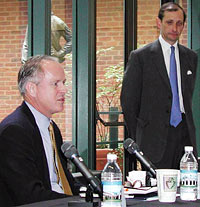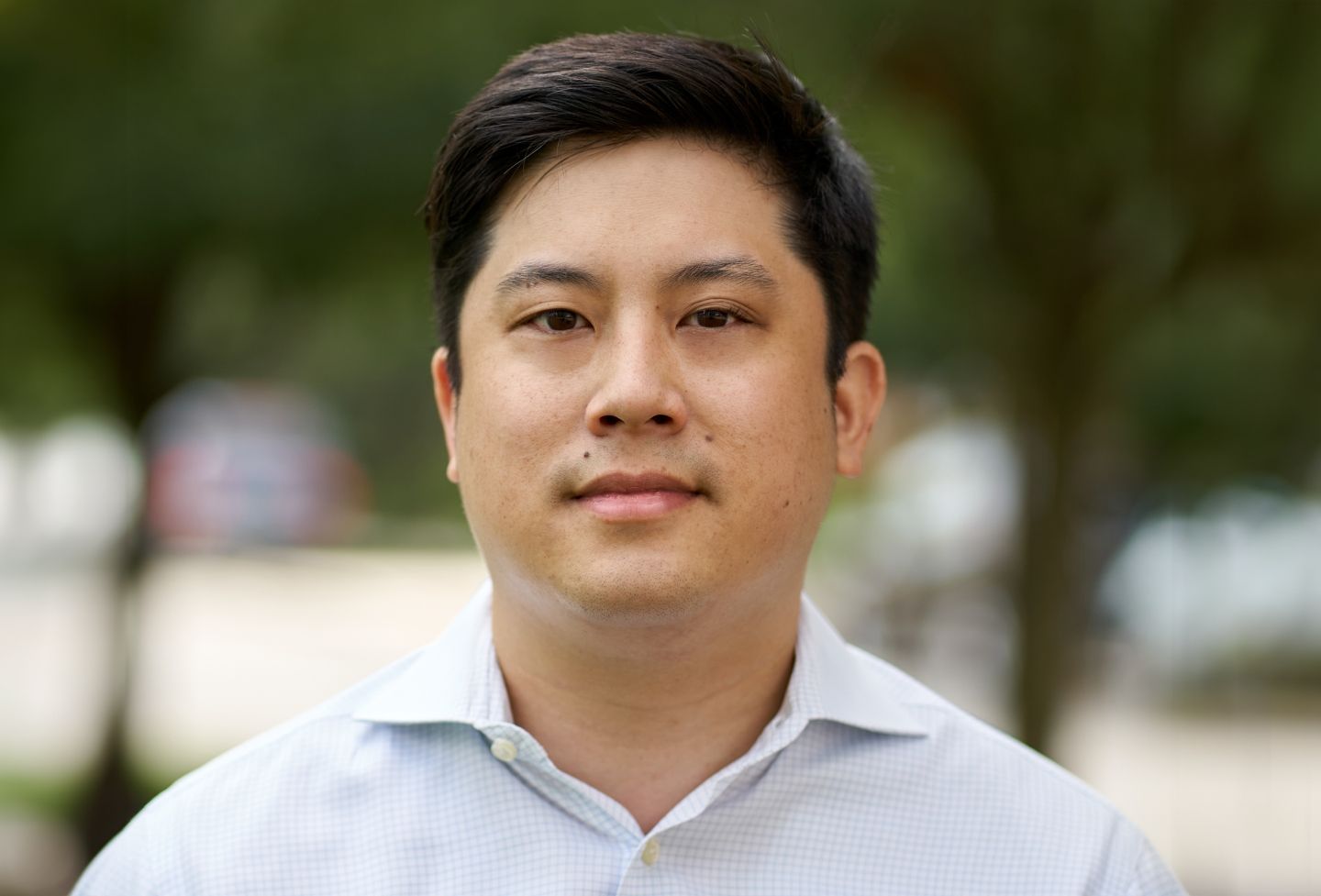Independent Directors Key to Corporate Governance, Say Elson, McDonald

Having independent directors with equity in the company decreases the potential for a business to go astray, according to Charles M. Elson '85, Director of the University of Delaware's Weinberg Center for Corporate Governance and Woolard Chair in Corporate Governance. "Independence and equity-those are the two words I want you to remember about corporate governance," said Elson, who spoke to the Law School's Business Advisory Council (BAC) about market and industry reforms during the BAC's program on "Capital Markets and Investor Confidence" Oct. 1.
Ten years ago few financial or business professionals talked about corporate governance, but a sea change has resulted from the barrage of business downfalls and corporate scandals in recent years.
Elson has studied the fall of Enron and other businesses, looking at large-scale collapses caused by directors who are not alert to inadequate management or a failed business model. He said that those who serve on a company's board of directors must be independent of the company to ensure their objectivity, and they must have a real stake in the company's performance. These factors promote fairness and provide incentive, both necessary for success.
Not all is wrong with the world as a result of some of these failed corporations, said Elson. People now know that companies with good accountability produce better results and long-term value.
Reforms such as the Sarbanes-Oxley Act (SOX) and New York Stock Exchange (NYSE) listing standards have been designed around failings of Enron and others and have changed the boardroom forever, he said. The SOX rules and regulations and the NYSE standards require independent directors and audit committees and encourage directors to meet regularly in executive session.
"Don't underestimate the value of these changes," said Jim McDonald '77. McDonald, a member of the BAC, is CEO of Rockefeller & Company and a newly appointed member of the NYSE's Board of Directors. He joined Elson in discussing the improper dealings in the recent past of the NYSE, and how new expectations and regulations around the Exchange's board have alleviated conflicts and resolved problems. "As a practical matter the independent directors being able to have private conversations in executive session provides a totally different backdrop for discussions," said McDonald. Although the Exchange is a private entity, the board has taken great pains to become SOX compliant in the past year, according to McDonald.
Founded in 1819, the University of Virginia School of Law is the second-oldest continuously operating law school in the nation. Consistently ranked among the top law schools, Virginia is a world-renowned training ground for distinguished lawyers and public servants, instilling in them a commitment to leadership, integrity and community service.


